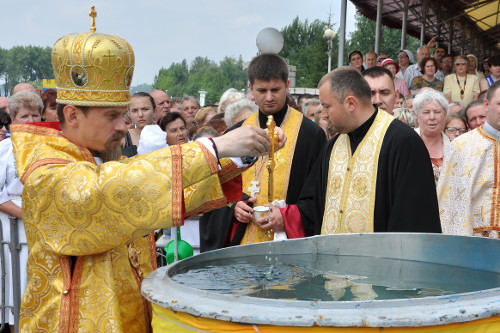
 “A sign of independence” from the Soviet world and from a “terrible and dismal” past. It represents opposition and distancing from the stance taken by the Russian Orthodox Church of the Moscow Patriarchate, which ” has openly supported the Russian army’s invasion of Ukrainian territory.” Above all, however, it marks the Ukrainian people’s desire to celebrate the Christian holidays in communion with Pope Francis and with their “brothers and sisters in Europe.” With these words Msgr. Teodor Martynyuk, auxiliary bishop of Ternopil-Zboriv, attending the Ukrainian Greek Catholic Church’s Synod on February 1st and 2nd, explained to SIR the “historic decision” to switch to the Gregorian calendar for fixed holidays as of 1 September 2023, with the preservation of the current Easter calendar.
“A sign of independence” from the Soviet world and from a “terrible and dismal” past. It represents opposition and distancing from the stance taken by the Russian Orthodox Church of the Moscow Patriarchate, which ” has openly supported the Russian army’s invasion of Ukrainian territory.” Above all, however, it marks the Ukrainian people’s desire to celebrate the Christian holidays in communion with Pope Francis and with their “brothers and sisters in Europe.” With these words Msgr. Teodor Martynyuk, auxiliary bishop of Ternopil-Zboriv, attending the Ukrainian Greek Catholic Church’s Synod on February 1st and 2nd, explained to SIR the “historic decision” to switch to the Gregorian calendar for fixed holidays as of 1 September 2023, with the preservation of the current Easter calendar.
Your Excellency, how did this decision come about?
The issue of the calendar had been discussed for some time. We have hitherto followed the Julian calendar. Pastoral needs, but above all requests from our faithful, prompted us to reflect on this change and to decide to opt for the new calendar, while preserving the dates relating to Easter and the festivities linked to the Resurrection. Thus the reasons are chiefly of a pastoral nature. There is also another reason: we wished to take this step together with our Orthodox brothers and sisters. At this time of war and great suffering, all our people came together in communion: we realised that only together could we survive this Russian invasion. We saw that our Orthodox brethren in the Ukrainian Autocephalous Church are also pursuing this path and preparing for that change. For now, the Orthodox Synod has decided to give this permission to those parishes that are prepared for the change. It is therefore a step we are slowly taking together.
To what extent did the large-scale Russian invasion that broke out on February 24 last year influence this decision?
We were saddened and deeply disappointed by the position taken by the Russian Orthodox Church of the Moscow Patriarchate, which openly supported the Russian army’s invasion of Ukrainian territory.
All Ukrainian people – Greek Catholics and Orthodox – understood this position as non-Christian, non-evangelical, not in accordance with the teachings of Christ. The Russian Orthodox Church follows the Julian calendar. For this reason, many Ukrainians started to say: ‘Enough is enough, we no longer want to celebrate our holy days with them. We want to be separate from them and go our own way.’ So yes, the Russian invasion did influence the decision.
It is something we had been discussing for some time but this process was accelerated after February 24. It was not a top-down decision, it was initiated at grassroots level.
In your opinion, which message does this decision send out?
First of all, we consider Catholics in Europe as our brothers and sisters and therefore we want to celebrate and mark these holidays together with the Holy Father, with the bishops and the people in Europe. It also signals our independence from the Soviet world and from that terrible, dismal past we experienced during the Soviet rule. We could not do it before. We have done it now.
In short, is it as a kind of liturgical Euromaidan?
It is.










